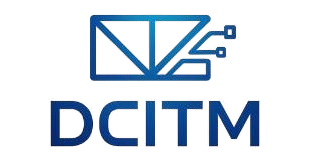Artificial Intelligence (AI) has moved far beyond theoretical discussions—it’s now a driving force reshaping economies, societies, and human behavior on a global scale. By 2025, AI has generated trillions of dollars in economic value while also igniting fierce debate over ethics, employment, and the essence of human purpose. Drawing on expert opinions, industry research, academic studies, and public discourse, this article examines how AI is redefining our world—highlighting its opportunities, challenges, and the road ahead.
Major Areas of Impact
AI’s reach spans nearly every sector of modern life—delivering remarkable progress while introducing new vulnerabilities. Studies estimate that AI could add up to $15.7 trillion to global GDP by 2030, though benefits may be distributed unevenly.
1. Economic Transformation and Productivity
AI enhances efficiency across industries through automation, predictive analytics, and intelligent decision-making. It’s projected to lift global GDP by 14% by 2030, cutting costs across sectors like healthcare—potentially saving $100 billion annually. Yet, this economic surge favors capital owners, heightening income inequality as technology investors and major corporations capture most of the financial upside.
2. Jobs and Workforce Disruption
AI doesn’t just replace repetitive labor—it’s also encroaching on knowledge-based professions such as law, accounting, and software engineering. Analysts predict that between 85–300 million jobs could be displaced by 2030, even as 97–170 million new roles emerge in AI oversight, creativity, and ethics. The shift could mark the dawn of a “post-labor” era, where humans transition from execution to supervision. Developing countries, with lower AI readiness, risk being left further behind economically.
3. Society and the Human Experience
AI simplifies life—personalized education, virtual assistants, and adaptive systems make daily tasks seamless. But this convenience comes at a cost: reduced human interaction, dependency on automation, and declining creativity. Surveys reveal that over 60% of young people fear AI may erode critical thinking and originality. Moreover, AI-driven surveillance systems—such as social credit scoring—raise concerns about privacy and personal freedom.
4. Ethics, Bias, and Manipulation
AI reflects human biases encoded into data, leading to discriminatory outcomes in hiring, policing, and financial services. Deepfakes and misinformation further blur the line between truth and deception, while autonomous weapons amplify global security risks. Without transparency and accountability, algorithmic errors in sensitive areas like healthcare can have life-threatening consequences.
5. Healthcare and Environmental Impact
In medicine, AI is a powerful force for good—accelerating diagnosis, improving drug discovery, and enabling personalized care. It’s also a valuable tool in fighting climate change through optimized energy use and disaster prediction. However, AI’s massive computational demand contributes to rising carbon emissions, and poorly governed systems risk reinforcing health inequities or denying care through biased algorithms.
6. Regulation and Global Governance
AI’s growth has outpaced regulation. Policymakers worldwide are racing to establish frameworks that ensure safety, privacy, and fairness. Left unchecked, risks such as AI-enabled cybercrime, terrorism, and rogue superintelligence could destabilize global systems. Governance models must therefore evolve rapidly to prevent abuse and maintain human oversight.
Diverse Perspectives on AI’s Future
The AI revolution sparks both enthusiasm and apprehension. Opinions diverge sharply among technologists, ethicists, workers, and policymakers.
Optimists and Innovators
Tech visionaries see AI as a catalyst for abundance—solving global issues like disease, poverty, and climate change. Leaders such as IMF’s Kristalina Georgieva emphasize that AI can drive inclusive growth if balanced by equitable policy. Innovators envision a world where humans focus on creativity, ethics, and strategic thinking while AI handles repetitive work. Concepts like the “agentic economy,” powered by autonomous AI agents, suggest a new era of collaborative intelligence.
Ethicists and Social Critics
Skeptics caution that AI could deepen inequality, erode empathy, and prioritize efficiency over morality. Some fear a slide toward “techno-feudalism”—where corporations control data, labor, and digital infrastructure, creating a new social hierarchy. Bioethicists argue that empathy and conscience—qualities machines lack—are essential to maintaining human dignity in an AI-dominated age.
Workers and Economic Analysts
Labor groups warn of psychological stress, surveillance, and job insecurity as automation expands. Commentators describe the emergence of “AI feudal lords”—powerful entities accumulating wealth through automation, leaving others economically stranded. Meanwhile, developing nations face “brain drain” as skilled professionals migrate to AI-advanced economies, deepening global inequality.
Balanced and Cautionary Voices
Some analysts take a middle ground, recognizing AI’s productivity potential while warning of social backlash if wealth disparities grow unchecked. Policy experts advocate for reskilling initiatives, universal basic income (UBI), and stronger data rights to ensure inclusive progress. Academics emphasize that sustainable AI adoption requires ethical governance and human-centered design.
Predictions and Strategic Challenges Ahead
By 2040, AI could make systems across healthcare, logistics, and governance dramatically more efficient—but also more fragile to misuse. Risks range from autonomous weapons to ecological damage caused by uncontrolled AI systems. As the world edges toward Artificial General Intelligence (AGI), the key challenges will revolve around alignment, equity, and control.
To navigate this future, societies must:
- Develop global ethical frameworks for AI transparency and accountability.
- Invest in mass reskilling and education to prevent technological unemployment.
- Adopt equitable policies such as UBI to distribute AI-generated wealth.
- Encourage decentralized AI ecosystems to avoid monopolization of power.
Conclusion
AI holds the promise of abundance, innovation, and global problem-solving—but it also poses existential risks if mismanaged. The coming decades will test humanity’s ability to align technology with moral responsibility. The ultimate question isn’t whether AI will change the world—it already has—but whether we can guide that change toward collective prosperity instead of division and control.
References
Marr, B. (2024). What Is the Impact of Artificial Intelligence (AI) on Society? https://bernardmarr.com/what-is-the-impact-of-artificial-intelligence-ai-on-society/
University of Cincinnati Online. (2024). Artificial Intelligence (AI) Benefits. https://online.uc.edu/blog/artificial-intelligence-ai-benefits/
Lumenalta. (2024). The Positive Impact of AI for Good. https://lumenalta.com/insights/the-positive-impact-of-ai-for-good
Imagining the Digital Future. (2024). The Impact of Artificial Intelligence by 2040: Hopes Highlighting Expected Positives in Years to Come. https://imaginingthedigitalfuture.org/reports-and-publications/the-impact-of-artificial-intelligence-by-2040/hopes-highlighting-expected-positives-in-years-to-come/
Pew Research Center. (2025). Views of AI’s Impact on Society and Human Abilities. https://www.pewresearch.org/science/2025/09/17/views-of-ais-impact-on-society-and-human-abilities/
University of California, Davis. (2024). Unraveling the Social Impacts of Artificial Intelligence. http://research.ucdavis.edu/unraveling-the-social-impacts-of-artificial-intelligence/
